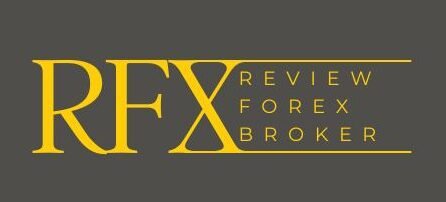When it comes to Forex trading, selecting the right broker can be as crucial as developing a sound trading strategy. The Forex market, with its high liquidity and round-the-clock trading hours, offers opportunities for traders of all styles and levels of experience. However, to maximize these opportunities and manage risks effectively, you need a broker that aligns with your specific trading style. Here’s a guide to help you make an informed choice:
1. Understand Your Trading Style
Before you start comparing brokers, it’s essential to clearly define your trading style. Each style has different requirements, and not all brokers cater to every type of trader. Here are some common trading styles:
- Day Trading: Day traders open and close positions within the same trading day. They require brokers with low spreads, fast execution speeds, and robust trading platforms.
- Swing Trading: Swing traders hold positions for several days to capitalize on short-to-medium-term trends. They need brokers that offer reliable market analysis tools and good customer support.
- Scalping: Scalpers make numerous trades throughout the day to capture small price movements. This style demands brokers with low spreads, high liquidity, and minimal slippage.
- Position Trading: Position traders hold positions for weeks or even months based on long-term trends. They should look for brokers with low commissions and a wide range of research tools.
2. Assess the Broker’s Trading Platform
The trading platform is your gateway to the Forex market. It should be user-friendly, reliable, and equipped with features that suit your trading style. Here are some key aspects to consider:
- Functionality: Ensure the platform supports your trading style. For instance, day traders might need advanced charting tools and real-time data, while position traders might prioritize long-term analysis features.
- Customization: Look for platforms that allow customization of indicators and trading tools. This can help tailor your trading environment to your preferences.
- Mobile Access: If you prefer trading on the go, check if the broker offers a robust mobile platform with all necessary features.
3. Evaluate Fees and Commissions
Different brokers have various fee structures, which can significantly impact your trading profitability. Common fees include:
- Spreads: The difference between the bid and ask price. Lower spreads are generally better, especially for scalping and day trading.
- Commissions: Some brokers charge a flat fee per trade or a percentage of the trade volume. Position traders might prefer brokers with lower commissions to minimize costs over the long term.
- Overnight Fees (Swap Rates): If you plan to hold positions overnight, consider the swap rates or rollover fees, which can be positive or negative.
4. Check Regulatory Compliance
Trading with a regulated broker ensures a certain level of security and fairness. Regulatory bodies, such as the Financial Conduct Authority (FCA) in the UK or the Commodity Futures Trading Commission (CFTC) in the US, enforce rules to protect traders.
- Regulation: Verify that the broker is regulated by a reputable authority. This can provide peace of mind regarding the safety of your funds and the integrity of trading practices.
- Deposit Insurance: Some regulatory bodies offer deposit insurance to protect traders’ funds in case the broker faces financial difficulties.
5. Look for Customer Support
Effective customer support can make a significant difference, especially when issues arise. Consider the following:
- Availability: Ensure that the broker offers support during the hours you trade. 24/5 or 24/7 support is ideal for full-time traders.
- Channels: Look for brokers that offer multiple support channels, such as live chat, phone, and email.
- Reputation: Research the broker’s reputation for customer service. Reading reviews and forums can provide insights into how well they handle issues.
6. Test the Broker with a Demo Account
Most brokers offer demo accounts that allow you to test their platform and services without risking real money. Use this opportunity to:
- Evaluate the Platform: Get hands-on experience with the trading platform and tools.
- Test Execution Speed: Check the execution speed and reliability of trades.
- Assess Customer Support: Contact customer support with any questions to gauge their responsiveness and helpfulness.
Conclusion
Choosing the right Forex broker is a critical decision that can influence your trading success. By understanding your trading style, evaluating the broker’s platform, assessing fees, verifying regulatory compliance, and testing their services, you can find a broker that best fits your needs. Remember, the right broker is not just about finding the lowest costs but about aligning with a partner that supports your trading goals and offers a reliable, secure, and efficient trading environment. Happy trading!

